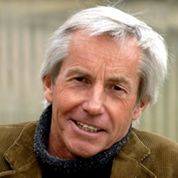'A searing portrait of the Nazi elite as the war turns against them. Raw, shocking and meticulously researched' TIM SEBASTIAN
Berlin, 1942.
For four years, the men in field grey have helped themselves to country after country across Western Europe.
For Werner Nehmann, a journalist at the Promi – the Ministry of Propaganda – this dizzying series of victories has felt like a party without end. But now the Reich's attention has turned towards the East, and as winter sets in, the mood is turning.
Werner's boss, Joseph Goebbels, can sense it. A small man with a powerful voice and coal-black eyes, Goebbels has a deep understanding the dark arts of manipulation. His words, his newsreels, have shaken Germany awake, propelling it towards its greater destiny and he won't let – he can't let – morale falter now. But the Minister of Propaganda is uneasy and in his discomfort has pulled Werner into his close confidence.
And here, amid the power struggle between the Nazi Chieftains, Werner will make his mistake and begin his descent into the hell of Stalingrad...
I'm delighted to be hosting the blog tour for Last Flight to Stalingrad today, many thanks to Graham Hurley and Lauren Tavella from Head of Zeus for inviting me and for my advance copy of the novel.
Fake news has become a loaded phrase over the past few years; either as a criticism aimed at legitimate news sources by the likes of the outgoing POTUS or as a warning against the plethora of heavily partisan sites that regularly churn out dubious (at best) content. Last Flight to Stalingrad takes us back to when fake news was more likely to be considered propaganda and proves to be a sombre lesson from the past.
Last Flight to Stalingrad is the fifth book in Graham Hurley's loosely linked Spoils of War series but can be read as a standalone and is set in 1942 as the Wehrmacht focuses its attention on Russia and Germany's fortunes begin to change. Werner Nehman is a Georgian journalist whose ability to spin a story has made him a favourite with master propagandist, Joseph Goebbels. He is the main protagonist of the story, although Luftwaffe pilot Georg Messner is an important figure too. The two men meet under entirely believable circumstances and though their wartime experiences are very different, there are unavoidable similarities between them. Just as Nehman is perhaps the closest thing Goebbels has to a confidant, so Messner is also close to a powerful figure - in this case, Wolfram von Richthofen. However, it is arguably Messner who is the lonelier figure here; Richthofen is the confident national hero while Messner is horribly scarred following a road accident and having lost his wife to another man, finds his solace in the brutal theatre of war.
Nehman's proximity to Goebbels could make him complacent but in this shady, precarious world of lies, he is starkly aware that he can't trust anybody, not even those he would consider as close to friends as is possible. It's eventually affairs of the heart which prove to be his undoing, resulting in a dramatic change in his fortunes when he is sent to Stalingrad, ostensibly to report back on the successful attacks on the city. As Russia heads towards winter, he learns of a phrase - Rasputitsa, when the rain and snow turns everything to mud and life stops completely, and understands immediately the scale of the impossible task ahead of them.
Of course, we are reading this with the benefit of grim hindsight and so there's a certain sense of foreboding that comes from knowing that Hitler's unequivocal desire to subjugate the Soviet Union is destined to fail. Clearly painstakingly researched, this is book which is bleakly atmospheric and is a solemn, quietly terrifying exploration of how people become dehumanised by war. As Nehman realises the truth about not just his own precarious position but also the stark realities facing Germany, he witnesses the terrible, harrowing violence of the SS at first hand and it shouldn't be surprising therefore that although he seems to accept his role as truth-twister, the eventual toll on him results in something that would usually be considered too horrifically barbaric for words but here becomes understandable, perhaps even heroic justice.
Last Flight to Stalingrad might be set during one of the most significant battles of modern warfare but the huge scale allows for an intimate, perceptive character study. Chillingly authentic throughout, this is historical fiction at its best. Highly recommended.
Last Flight to Stalingrad is published by Head of Zeus, purchasing links can be found here but please consider supporting independent bookstores whenever possible, either by ordering directly or through bookshop.org.
Don't miss the rest of the blog tour, details are below.
About the Author
Graham Hurley is the author of the acclaimed Faraday and Winter crime novels and an award-winning TV documentary maker. Two of the critically lauded series have been shortlisted for the Theakston's Old Peculier Award for Best Crime Novel. The first Wars Within novel, Finisterre, was shortlisted for the Wilbur Smith Adventure Writing Prize.




This comment has been removed by a blog administrator.
ReplyDelete